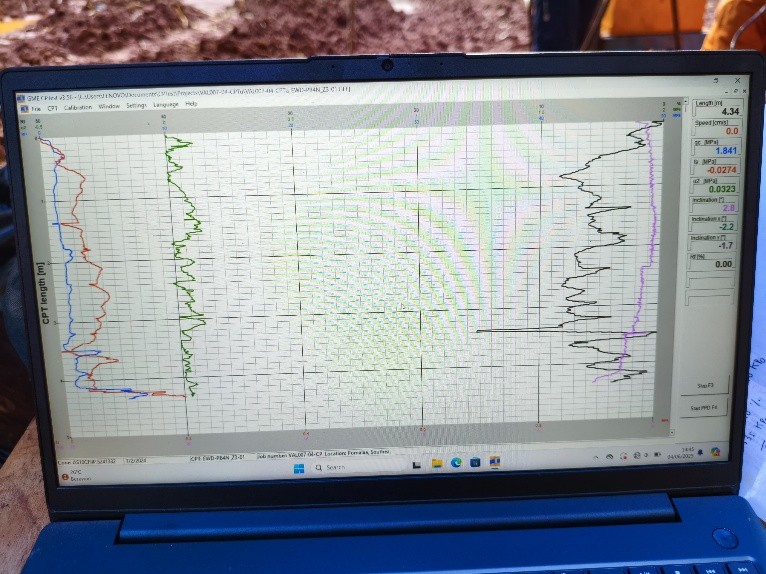
What is CPTu?
The CPTu test in geotechnical engineering is an advanced soil investigation method developed from the standard Cone Penetration Test (CPT). By adding pore pressure measurement, the CPTu test provides more detailed insights into subsurface conditions, including soil strength, stratigraphy, and liquefaction potential.
How the CPTu Test in Geotechnical Engineering Works
A CPTu system consists of several key components:
Cone Penetrometer – records tip resistance and sleeve friction.
Piezocone (Pore Pressure Sensor) – detects pore water pressure during penetration.
Hydraulic System – pushes the probe vertically into the soil at a constant speed.
Data Logger and Cables – capture and store data in real time.
👉 Related article: What is a Dynamic Cone Penetrometer (DCP)?
Field Testing Procedure
The CPTu method is carried out through these steps:
Preparing the equipment and calibrating the sensors.
Inserting the cone vertically into the ground at a rate of about 2 cm/second.
Recording tip resistance, sleeve friction, and pore pressure continuously.
Processing the data to interpret soil type, groundwater conditions, and shear strength parameters.
👉 Reference: ASTM D5778 Standard Test Method
Applications in Geotechnical Engineering
The CPTu soil test is widely used in geotechnical and civil engineering projects, such as:
Designing pile foundations and high-rise structures.
Identifying liquefaction potential in earthquake-prone areas.
Assessing slope and embankment stability.
Modeling geotechnical parameters such as undrained shear strength (cu) and pore pressure ratio.
Mapping soil stratigraphy with high resolution.
Advantages of the CPTu Test
Compared to traditional soil investigation methods, the CPTu method provides:
✔️ Higher efficiency and accuracy
✔️ Immediate availability of results without waiting for lab tests
✔️ Detailed subsurface profiling with real-time interpretation
📌 Summary
The CPTu test in geotechnical engineering is a reliable and efficient method for soil investigation. By combining tip resistance, sleeve friction, and pore pressure data, engineers gain deeper insights into subsurface conditions—essential for safe foundation design, slope stability analysis, and earthquake risk assessment


Thanks so much for giving everyone an extraordinarily remarkable chance to check tips from this web site. It’s usually very ideal plus packed with a great time for me and my office acquaintances to visit your web site particularly thrice in a week to learn the new issues you have got. And of course, I’m always fascinated for the astounding knowledge you give. Selected 2 facts in this posting are in reality the most suitable we have had.